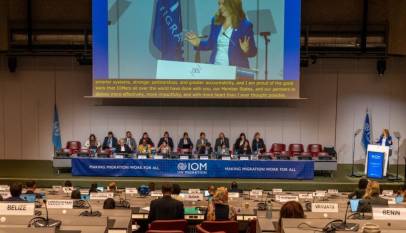Action Aid trains Nigerian citizens on use of Freedom of Information Act
Action Aid, the international nonprofit dedicated to achieving social justice, gender equality and poverty eradication, Tuesday commenced a two-day mentoring session in Kano for a select group of Nigerian citizens on the use of Nigeria’s Freedom of Information (FOI) Act to request for information from public institutions.

Passed into law in 2011, Nigeria’s FOI Act aims to make public records and information more freely available to citizens; provide for public access to public records and information; as well as protect public records and information to the extent consistent with the public interest and the protection of personal privacy. The Act also protects serving public officers from adverse consequences of disclosing certain kinds of official information without authorization.
The training which draws participants from various walks of life including youths, journalists, civic activists, legal practitioners, People living With Disabilities (PWDs), and members of women groups from the states of Kano and Jigawa, was part of a 5-year Strengthening Citizens Resistance Against Prevalence of Corruption (SCRAP-C) project of the larger UK Department for International Development’s Anti-Corruption in Nigeria (ACORN) programme.
Speaking on the cost of corruption to Nigerian citizens at the session, Newton Otsemaye, SCRAP-C’s project manager at Action Aid Nigeria said the fact that majority of Nigerians couldn’t freely access basic social services such as healthcare, clean water and safe buildings to live (because developers have bribed their way out of adhering to health and safety standards), was putting their lives at risk.
He said as well as undermining public trust in governance and elections processes, public corruption was facilitating the violations of human rights and perpetuating inequality. “Corruption has more than just financial costs. It reduces public trust and citizens’ willingness to participate in society. For example, citizens who perceive politicians as corrupt may not bother to vote in elections, get engaged in politics, or pay taxes.
“Human rights are violated as a result of corruption. For example, courts violate the fundamental right of access to justice when they only hear cases if parties bribe staff and judges. Corruption perpetuates inequality. Data shows that poor people suffer disproportionately from corruption. In modest income households, petty bribes to a nurse can cut deep into a family’s disposable income,” Otsemaye said.
Managed by ActionAid Nigeria in consortium with other Nigerian not-for-profit organisations, SCRAP-C is designed to address corruption through change in social norms and public attitudes that support corruption. The project is premised upon various studies that have revealed the scourge as a social problem affecting social, political and economic life of Nigerians, consequently hindering development and preventing investment in public values. Hence, the need for citizens to take up the responsibility of demanding for a better society in which accountability and transparency in public and private sectors are norms.











